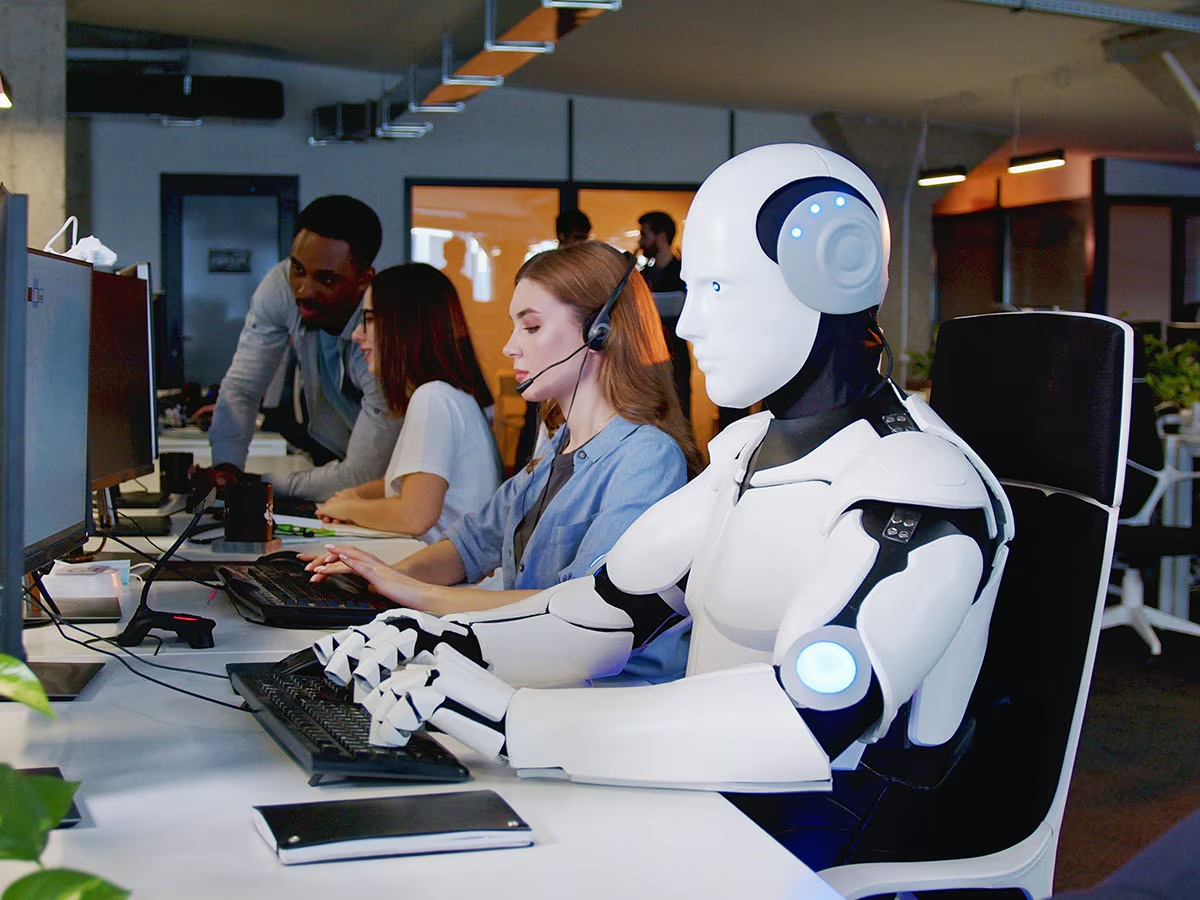As artificial intelligence (AI) continues to evolve, many industries face the potential for significant changes in their workforce. Understanding which jobs are most susceptible to replacement by AI can help workers prepare for the future. Below, we explore nine roles that could see the most immediate impact from AI technologies.
1. Data Entry Clerks
Data entry clerks are responsible for inputting information into databases and systems. This role is highly repetitive, making it an ideal candidate for automation. AI algorithms can quickly and accurately process vast amounts of data, reducing the need for human intervention in this field.
2. Retail Cashiers
The retail industry has already begun to see the rise of self-checkout systems powered by AI. As these systems become more sophisticated, the need for human cashiers is likely to diminish. AI can streamline the checkout process, making it faster and more efficient for consumers.
3. Telemarketers
Telemarketing involves making repetitive calls to potential customers, a task well-suited for AI. Automated calling systems can engage in conversations, answer queries, and even close sales, significantly reducing the workforce required for this role.
4. Customer Service Representatives
AI-driven chatbots and virtual assistants are already changing the landscape of customer service. These technologies can handle multiple inquiries simultaneously, providing quick and efficient responses to customers without the need for human representatives. As AI continues to improve, traditional customer service roles may become increasingly obsolete.
5. Manufacturing Workers
In manufacturing, robots and AI systems are being integrated into production lines. These machines can perform tasks such as assembly, quality control, and packaging with precision and speed. As automation becomes more prevalent, many manufacturing jobs are at risk of being replaced by AI technologies.
6. Drivers
The rise of autonomous vehicles poses a significant threat to driving-related jobs. Whether it’s truck drivers, taxi drivers, or delivery personnel, AI technology is advancing rapidly, paving the way for self-driving vehicles that can operate without human input. This shift could lead to widespread job losses in the transportation sector.
7. Financial Analysts
Financial analysts rely on data analysis to provide insights into market trends and investment opportunities. AI systems can analyze vast datasets much faster than humans, offering predictions and analysis with high accuracy. As AI tools become more prevalent in finance, the demand for traditional financial analysts may decline.
8. Content Creation
With advancements in natural language processing, AI can now generate written content, including articles, reports, and even marketing copy. While creative roles may not disappear entirely, the demand for human writers could be diminished as businesses increasingly turn to AI for content generation.
9. Legal Assistants
Legal research and document review are often time-consuming tasks that are ripe for automation. AI can efficiently analyze legal documents, conduct research, and even draft contracts, which could reduce the need for human legal assistants in law firms.
| Job Role | Potential Impact of AI |
|---|---|
| Data Entry Clerks | High |
| Retail Cashiers | High |
| Telemarketers | High |
| Customer Service Representatives | High |
| Manufacturing Workers | High |
| Drivers | High |
| Financial Analysts | Medium |
| Content Creation | Medium |
| Legal Assistants | Medium |
As AI technology continues to advance, the workforce landscape will inevitably shift. While some jobs may disappear, new roles will emerge that require human skills in collaboration with AI. Workers in the affected fields should consider upskilling and exploring new opportunities to remain competitive in the evolving job market.
Understanding which jobs will be impacted by AI can help individuals and organizations prepare for the changes ahead. By embracing technology and adapting to new roles, workers can position themselves for success in a future where AI plays an increasingly prominent role.
In conclusion, the integration of AI into various sectors presents both challenges and opportunities. By staying informed and proactive, individuals can navigate this transition and find ways to thrive in a world increasingly influenced by artificial intelligence.

















